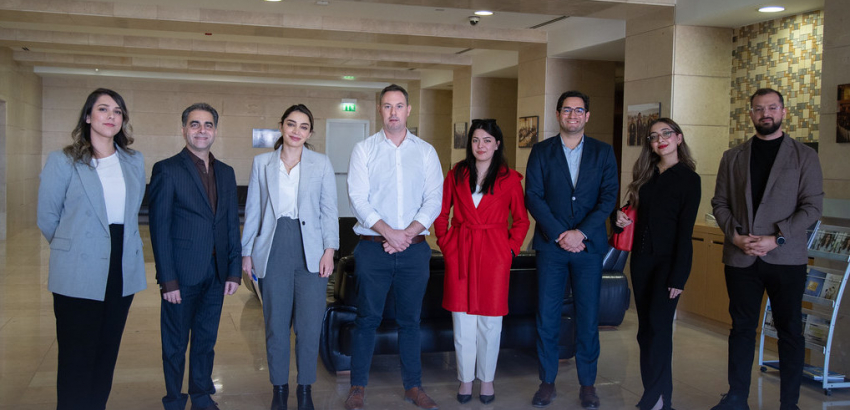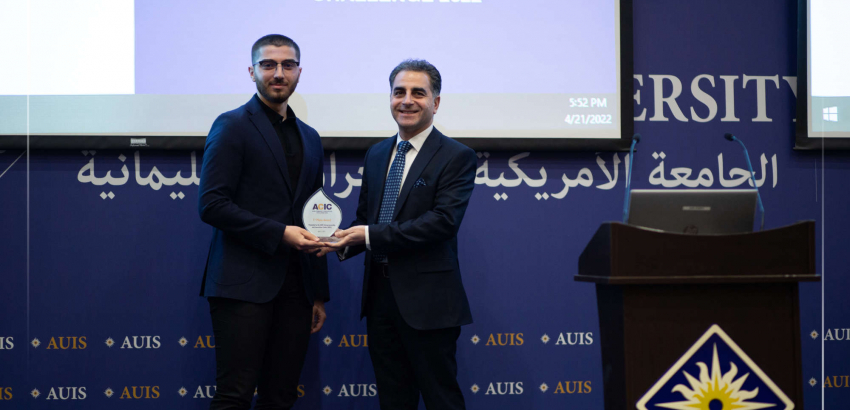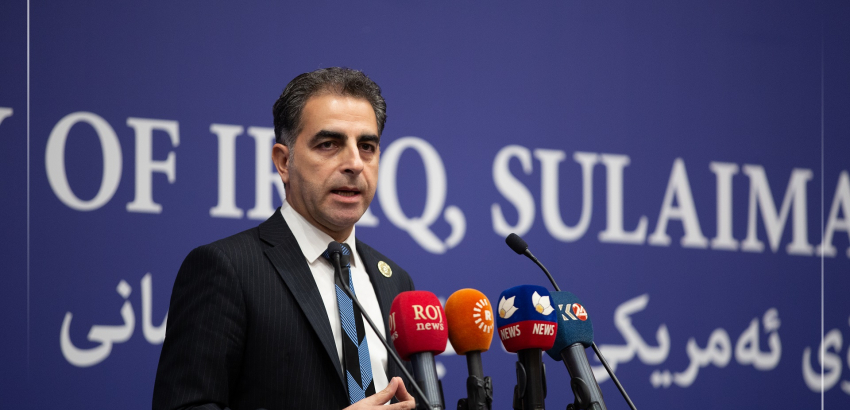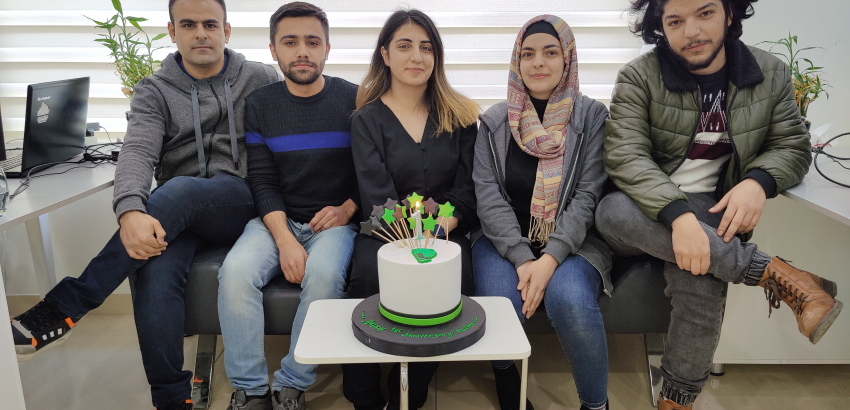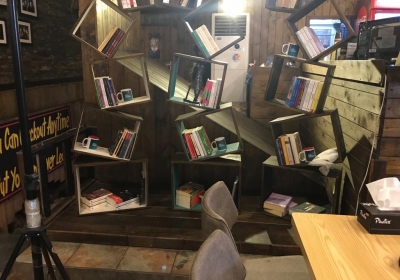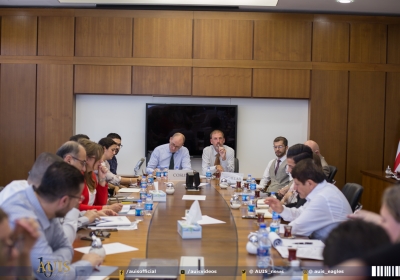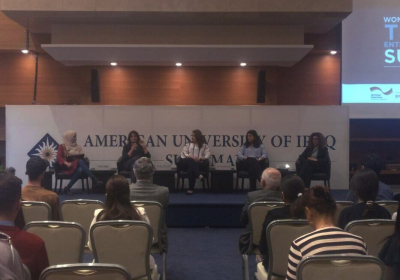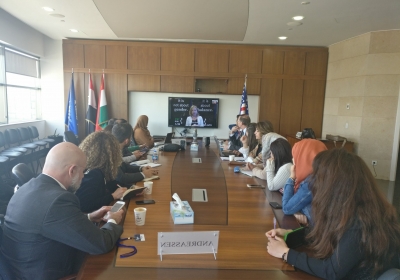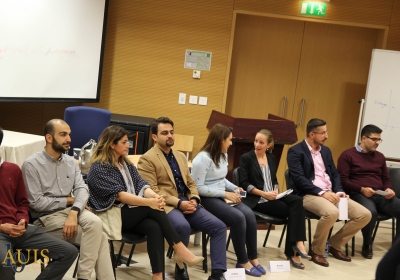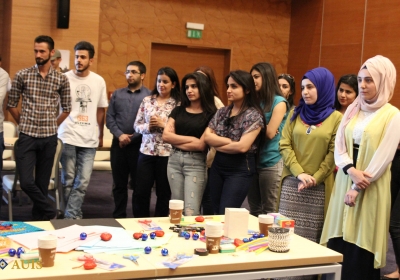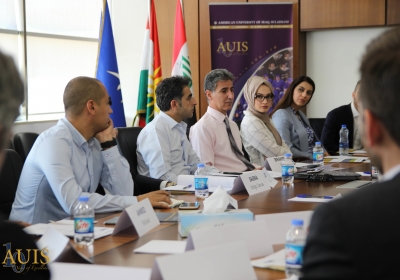Most of the coverage and analysis of Iraq post-2003—by international, regional, and local journalists and analysts—has focused on the dysfunctional state and warring political elites whose failures to provide basic services to an already alienated population has come in sharp focus during the recent Basra demonstrations. However, despite the vital nature of this coverage, it has missed a new entrepreneurial Iraq—represented by its youth—that has emerged and flourished in the new cultural openness and interconnectedness of post-2003 Iraq.
Since 2003, Iraqis’ and Westerners’ sentiments of blame and guilt in response to the 2003 invasion—as legitimate as they are—overlook the silver lining that accompanied it. For all its ills, Iraq experiences freedom from state censorship, unfettered access to the world, and life that is mostly free from state interference. It is this openness that has provided youth with an opportunity to create exciting new businesses. They inhabit a parallel Iraq—one that is undiscovered by both the outside world and many Iraqis whose spirits have been crushed by the trauma of conflict and daily grind of living in a country largely defined by corruption and mismanagement.
The opening of “The Station,” the first purpose-built co-working space for young entrepreneurs in Baghdad, in early 2018 brought much needed, yet fleeting, attention to this parallel Iraq. The Station, however, is just a small taste of the vibrant entrepreneurial space operating in Baghdad and elsewhere in Iraq. A recent trip to Baghdad by members of the AUIS Entrepreneurship Initiative (AEI) provided a brief opportunity to explore the scene at The Station, Al-Faisaliya Restaurant & Café, and IQPeace—three different manifestations of the co-working space in the Baghdad. Each location—along with the startups it supports—has a story worth telling.
Over the past several years, a rich culture of entrepreneurship has developed in Baghdad upon which these new co-working spaces and their supported startups have flourished. Some of the most well-known of these success stories include Miswag and Mishwar, online and app-based delivery platforms, and the first “Escape the Room” game in Iraq. Recently-founded startups such as Hilli, Bilweekend, Daraj, Tech4Peace, and Ikfal Nakhla have taken inspiration from these initial success stories and expanded the need and market for co-working spaces, mentorship, and training programs. They have joined the ranks of others such as Brsima, Indigo Canvas, The Book Cafe, and Mirsha Media, as well as training organizations such as re:coded, Tech Hub, and Five One Labs based in Sulaimani and Erbil. These, in turn, are part of a broader network that extends all the way from northern Iraq down to Najaf and Basra.
(below is an overview of three Baghdad-based co-working spaces and a major virtual support network, a list of some unique established and emerging start-ups in Baghdad, and an overview of some additional startups operating at various stages in the Kurdistan Region of Iraq.)
The visons, business models, and growth challenges of Iraq’s start-ups are no different than start-ups elsewhere in the world; however, they face additional Iraq-specific challenges as detailed in a 2017 report by IRIS “Obstacles and Opportunities for Entrepreneurship in Iraq and the Kurdistan Region.” These broadly fall into three main categories.
Bureaucracy
The first category, bureaucracy, involves an extensive network of public sector requirements to incorporate and maintain companies. Such lengthy procedures place huge financial, time, and operational demands on these start-ups. As a result, most of them opt to operate in the shadow economy—a decision that stunts their growth prospects and hinders their abilities to develop into sustainable growth companies that would expand the private sector.
Infrastructure
The second category, infrastructure challenges, is defined by a number of problems, the most notable of which is the under-developed banking sector and its very slow adoption of mobile banking and payment systems despite the wide adoption of mobile phones. Almost all transactions with suppliers, trade counter-parties, and customers are performed in cash, which strains working capital and affects start-ups’ cash flows and operating flexibility, security, and transaction paper trail, and increases the costs of handling cash. Other infrastructure challenges include a cumbersome legal structure and poor enforcement of existing regulations, both of which affect trade and payment disputes and weaken intellectual property and copy rights.
Access to Capital
The third and the most crucial category is the very limited access to capital. The main sources of growth capital in Iraq come from savings, family, and friends. Entrepreneurs face extremely limited access to or availability of bank lending and local investors. In the rare cases that either of these options are available—i.e. banks and investors—they demand high collateral and immediate high returns in the form of interest payments or dividends. These limit investments and business options to those that generate quick returns rather than encourage ongoing investments in the form of reinvested earnings that generate sustainable businesses.
The solutions provided by these co-working spaces and AUIS’s upcoming Entrepreneurship Initiative go a long way in providing a nurturing environment essential to encouraging and sustaining the entrepreneurial culture. However, long-term and patient investment capital is crucial for these efforts to be translated into a thriving start-up scene in which existing start-ups can evolve into larger sustainable companies.
Iraq’s challenging environment means that the sustainability of start-ups is fraught with uncertainty. Therefore, only long-term and patient investment capital can accept the high risks and the long wait time for financial returns – which is what is necessary for these start-ups to transform into successful companies.
In more developed economies, this long-term capital is provided through an ecosystem of angel investors, venture capital firms, and private equity funds. However, the development of these mechanisms in Iraq requires considerable time and the introduction of new laws, regulations, and policies. The dilemma for Iraq is that the need for such long-term capital is immediate, and therefore the need to find solutions to bridge this gap is urgent.
A viable solution is the creation of an investment fund that combines the attributes of angel investment, venture capital, and private equity funds to provide the growth and expansion capital for commercially promising start-ups. However, the risk profile of the underlying investments means that initial funding will come from neither the traditionally risk-averse and short-term focused private sector nor the Iraqi public sector given the enormous demands placed upon it and its strained resources. Therefore, initial investment capital must come from Iraq’s international stakeholders as part of their support and development aid. Private sector capital will, in time, be attracted to the fund once the risk-profile is lowered by evidence of its success and higher possibilities of financial returns.
The fund’s success will, to a large extent, be dependent on the existing entrepreneurial culture that has succeeded despite all odds and prevailing pessimism, and therefore would build upon an existing success story. Its establishment would fuel the enthusiasm and achievement of these young, bright start-ups by providing them with the essential capital required to build upon and sustain their achievements. Their success will invite others to join, and therefore herald the emergence of an independent private sector in Iraq.
|
Baghdad offers a variety of spaces that provide support in the form of mentorship, and networking, and skills development. These range from a state-of-the-art coworking space to a startup-hosting cafe and community center designated to creativity and innovation.
Al-Faisaliya Restaurant & Cafe
-
Founded in March 2017 in Karrada
-
Cafe and restaurant with live music and local bands like Project 904
-
Features local startups Hili, Daraj, Tech 4 Peace, Razouna, and Jakaroo
-
Hosts game nights, films, speakers, and literary sessions
IQPeace
-
Founded in 2011 in Karrada
-
Center that offers daily support for young innovators and a space for music and art production
-
Develops programming in 5 categories: music production, entrepreneurship, photography, computer programming, and peacebuilding and conflict resolution
-
Helps individuals and groups establish and build membership in specialized clubs on a variety of topics, including music, jazz, chess, and nutrition
-
Uses recyclable and sustainable material in building structures, including a solar-powered phone charging station
-
Organizes the annual Baghdad City of Peace Carnival, which at its most recent celebration in September 2018, attracted approximately 30,000 visitors
The Station
-
Founded in February 2018 in Karrada
-
State-of-the-art co-working space and maker space that offers events, workshops, and talks for innovators and entrepreneurs at different levels of membership for a fee
-
Helps tech, cultural, and social entrepreneurs such as Bilweekend, Baghdad Toastmasters, World Merit Iraq, Daraj, Zuqaq13, Ariika and Ikfal Nakhla by providing physical space, mentorship, and training to develop and expand their businesses
Zain Innovation Campus
-
Support hub for entrepreneurs, currently with a physical space in Amman, Jordan, but with virtual support for entrepreneurs in Iraq in the form of resources, activities, and workshops. Zain augmented this with its youth empowerment platform, ZY, aimed at unlocking opportunities for the youth
|


